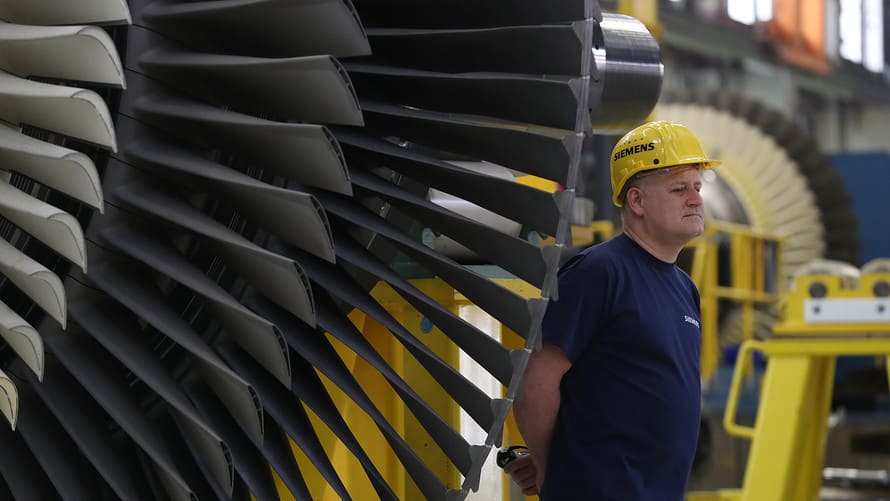
European stocks finished lower on Friday, but registered a second straight weekly gain, after U.S. President Donald Trump threatened China with additional tariffs.
The White House announcement unsettled markets, ratcheting up the possibility of a prolonged trade conflict, after a week of tit-for-tat moves by Washington and Beijing.
How markets are moving
The Stoxx Europe 600 index SXXP, -0.35% slipped 0.4% to 374.82, erasing a small part of a 2.4% rise logged on Thursday, when the index rallied to its best one-day percentage gain since June 19, 2016 on an easing in trade-war worries. For the week, the pan-Europe gauge rose 1.1%, marking its second weekly rise in a row.
But stocks pared some losses. In Frankfurt, the DAX 30 DAX, -0.52% fell 0.5% to 12,241.27 after soaring 2.9% on Thursday for its best single-session gain since April 24. In Paris, the CAC 40 index PX1, -0.35% slipped 0.4% to 5,258.24, after its best one-day rise in almost a year. For the week, the index rose 1.8%.
The FTSE 100 index UKX, -0.22% slipped 0.1% to 7,190.57.
The euro EURUSD, +0.3349% traded at $1.2261, slightly above $1.2242 seen late Thursday in New York.
What’s driving markets
Trump said the U.S. is exploring the possibility of imposing tariffs on another $100 billion worth of Chinese goods. The move could escalate a fragile situation between the two countries that has seen tit-for-tat tariff announcements against the other in recent days.
In recent sessions, global equity markets have had a bumpy ride as traders shifted from pessimism to optimism and back again over the prospect of a trade war between the world’s two biggest economies.
European markets were being dragged lower Friday alongside Wall Street stocks.
Also in focus for investors are the U.S. monthly jobs data, a reflection of the health of the country’s economy. Many European companies count the U.S. as a key market.
What strategists are saying
“It all looks more like a classic Trump negotiation—float an extreme position, to step back from the worst-case scenario in return for some big concessions. Both sides would prefer to negotiate a settlement,” said Neil Wilson, senior market analyst at ETX Capital.
“Nevertheless, markets will be sensitive to the fact that a full-blown trade war could result if the two camps back themselves into a corner. The risk of miscalculation increases the more the two sides push this,” he said.
Stock movers
The chip sector was a big loser in Europe. ASML Holdings NV ASML, -2.04% ASML, -1.71% shares dropped 1.7%, while Germany’s Infineon Technologies AG IFX, -0.05% fell 0.8%.
The sector was in focus Friday as Samsung Electronics Co. Ltd. 005930, -0.70% reported earnings amid concerns a trade-war could hit its chip business. Also, analysts at UBS said Thursday that the semiconductor industry will face headwinds this year.
Among the heavyweights in Germany, shares of industrial manufacturing giant Siemens AG SIE, -0.29% fell 0.2%. Chemical group BASF SE BAS, -0.25% shed 0.5%.
Also weighing on the downside was banking giant HSBC PLC HSBA, -1.32% HSBC, -1.19% which fell 1.3%.
In Italy, shares of Telecom Italia SpA TIT, +6.94% surged 6.9% after Vivendi SA VIV, -0.74% (VIV.FR) announced its candidates for the Italian telecom’s board, and as Italy’s state-controlled lender CDP approved its plan to take a stake in the company, both on Thursday.
The economy
The U.S. nonfarm payrolls data for March showed a far-weaker-than-expected gain of 103,000, against an expectation of 170,000. It was the smallest gain in six months. Hourly wages rose 8 cents, or 0.3%, to $26.82 in March. The 12-month increase in pay edged up to 2.7% from 2.6%.
Federal Reserve Chairman Jerome Powell on Friday backed a “patient” approach to raising interest rates. “The FOMC’s patient approach has paid dividends and contributed to the strong economy we have today,” Powell said, in a speech to the Economic Club of Chicago.